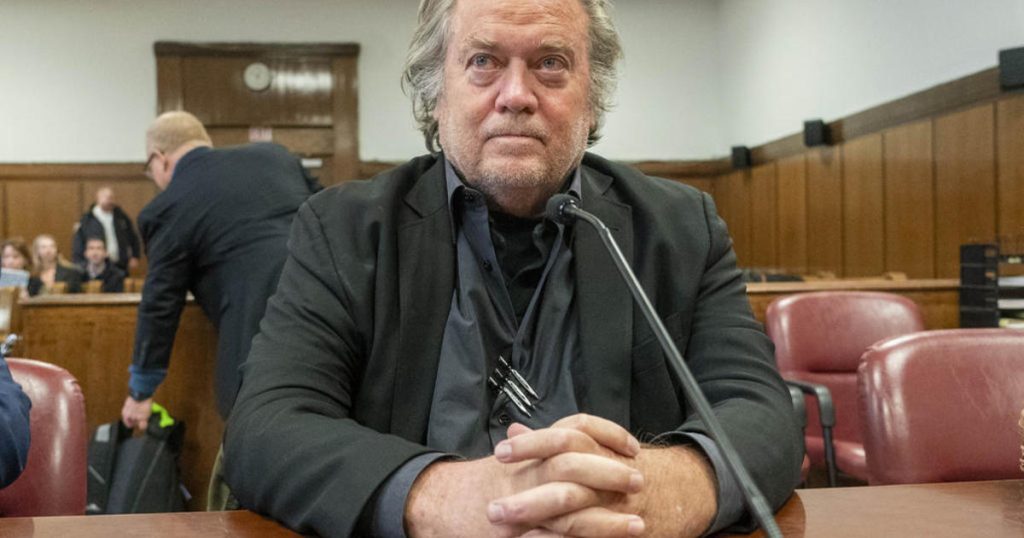A three-judge appeals court panel has upheld the criminal conviction of former Trump White House chief strategist Steve Bannon for not responding to a subpoena from the House select committee investigating the Jan. 6, 2021, attack on the U.S. Capitol. Bannon was found guilty of two misdemeanor counts of contempt of Congress in 2022 and sentenced to four months in prison. Despite claiming that he was following the advice of his attorney and citing executive privilege concerns raised by former President Donald Trump, Bannon’s appeal was denied by the panel, which found no basis to depart from binding legal precedent.
Bannon’s legal team argued that he did not willfully defy Congress by not responding to the subpoena, as he was following the advice of his attorney. However, the appeals court ruled that this “advice of counsel” defense was not valid. The judges upheld the criminal contempt charges against Bannon, emphasizing that the disregard of the subpoena did not require bad faith, evil motive, or unlawful purpose. They pointed to standing legal precedent that makes clear advice of counsel is not available under this statute. The judges also rejected other arguments from Bannon’s defense team, including the claim that the Jan. 6 committee was invalid.
While Bannon’s attorney did not immediately respond to a request for comment, there are other avenues of appeal that the legal team can pursue, including asking the Supreme Court to reconsider the matter. Bannon is not the only Trump White House official to be convicted for defying a subpoena from the House Jan. 6 committee. Former trade advisor Peter Navarro is currently serving a four-month prison sentence for contempt and is also appealing his conviction. Navarro has asked another federal judge to release him from prison into supervised release, citing allegations that he was denied the opportunity to speak with the press and a Member of Congress. It remains unclear what effect the appeals court ruling will have on Bannon’s prison sentence.
The congressional investigators were interested in Bannon’s work in over a dozen key areas, including his communications with former President Donald Trump. The appeals court judges, appointed by both Democratic and Republican presidents, unanimously ruled that Bannon’s deliberate refusal to comply with the subpoena was sufficient to uphold the criminal contempt charges. Despite assertions from Bannon’s defense team, the judges concluded that he knew what the subpoena required and intentionally chose not to respond. The ruling emphasized that Bannon’s nonresponse was not accidental and that advice of counsel is not an acceptable defense under the applicable statute.
In conclusion, the appeals court upheld Steve Bannon’s criminal conviction for contempt of Congress for failing to respond to a subpoena from the House select committee investigating the Jan. 6 Capitol attack. The judges rejected Bannon’s claims that he was following the advice of his attorney and that the committee was invalid. While Bannon’s legal team may pursue further avenues of appeal, the ruling underscores the importance of complying with congressional subpoenas and the limits of using advice of counsel as a defense in such cases. The decision has implications not just for Bannon, but for other Trump White House officials facing similar contempt charges for defying congressional subpoenas.


